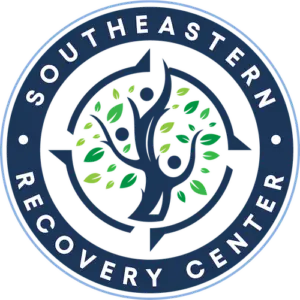My son was inpatient there for a few weeks. They told them to come up with a business plan how to sell drugs. The inpatients had to cook their own food ect……. Was not successful!:( trying to save a life and this is how. It was treated.
About Southeastern Recovery Center – Drug & Alcohol Rehab
Throughout your time struggling with drug or alcohol addiction, you’ve probably met countless other people battling addiction too, and heard their stories. You know that everyone’s journey toward and through addiction is unique. So why would one treatment path work for everyone? That’s our core philosophy at Southeastern Recovery Center in Concord, North Carolina: you’re one of a kind and you’re a person who’s worthy of a better life, and your treatment should be as individual as you are.
24 Hour Help When You Need It
We’re an outpatient treatment center, but we recognize that addiction doesn’t follow a 9-5 schedule, so neither do we. Our team is available by phone around the clock so if you’re having a tough moment, or if you make the life-saving decision to seek treatment, you don’t have to wait until morning because we’ll be there to take your call with warmth, compassion and support.
Experiential Therapies for a Hands-On Approach
Our partial hospitalization and intensive outpatient programs incorporate all the traditional therapies that help so many people overcome addiction: cognitive behavioral therapy, group therapy, and trauma therapy. But we also know that everyone heals in different ways and for many, talk therapies are one piece of the puzzle but they don’t complete the picture.
That’s why we also use a wide range of experiential and holistic therapies. These are techniques that involve doing something or creating something to help you work through trauma and develop skills and mindset shifts that will make recovery sustainable.
We offer art therapy, music therapy, equine assisted therapy, somatic movement and other body-based therapies, role-playing or psychodrama, guided imagery. We can also incorporate meditation and breathwork for trauma healing.
Medications for Opioid Addiction
Therapy helps you build the tools that contribute to lifelong recovery, but that takes time, and sometimes the biggest hurdle is staying sober long enough to get the benefits of rehab. That’s why we offer medication-assisted treatment or MAT for people with opioid use disorder. These medications lower the constant urges to use and reduce your risk for relapse, giving you time to recover.
Whether you struggle with addiction to opioids, stimulants like cocaine or meth, alcohol, or numerous other substances, or even gambling, we have a team of experts here to create a tailored approach just for you.
Latest Reviews
See AllRehab Score
Gallery
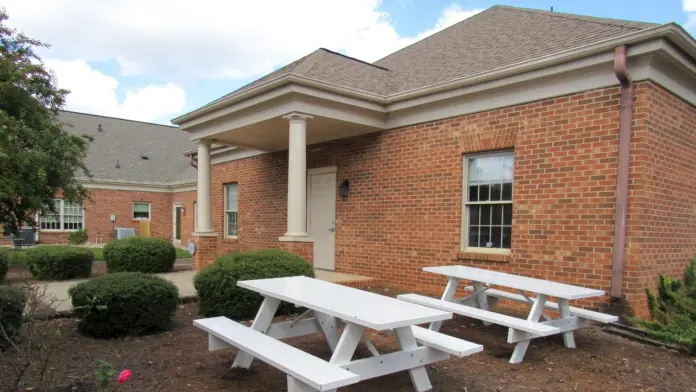
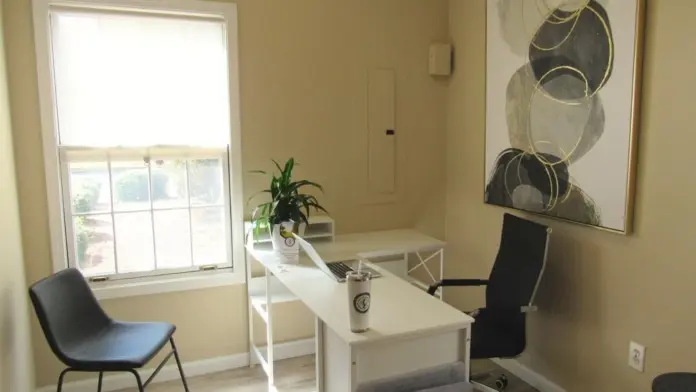
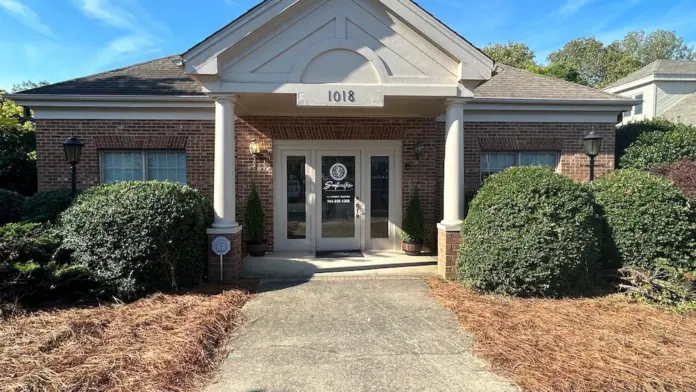
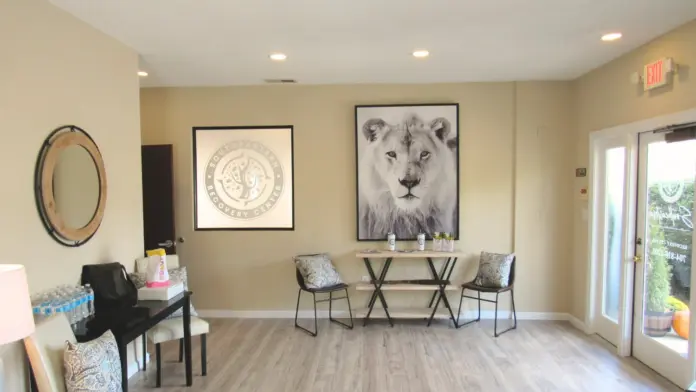
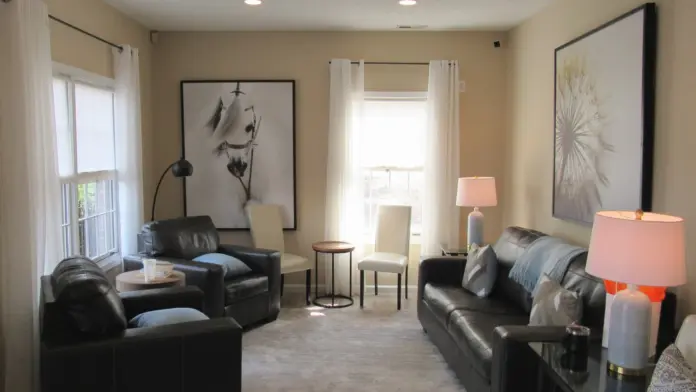
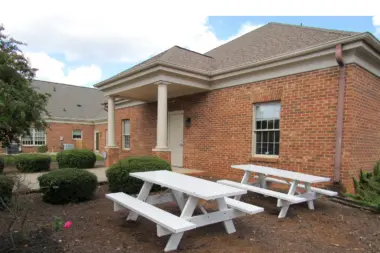
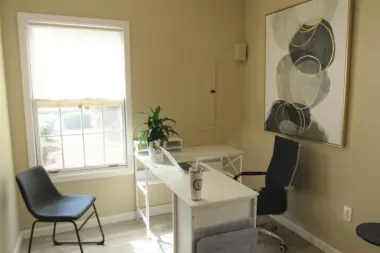
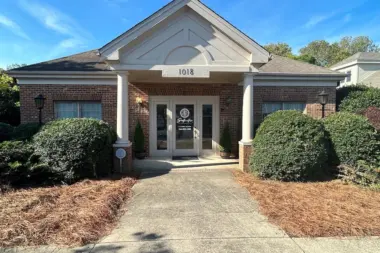
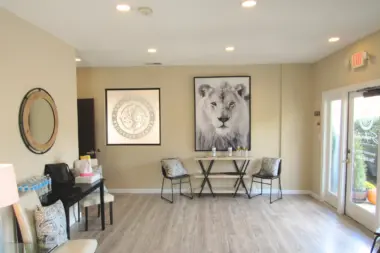
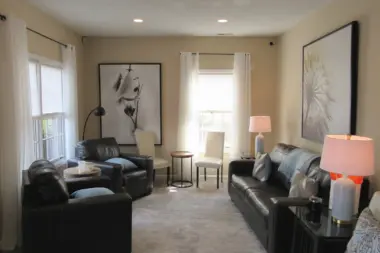
Accepted Insurance













Other Forms of Payment
Private insurance refers to any kind of healthcare coverage that isn't from the state or federal government. This includes individual and family plans offered by an employer or purchased from the Insurance Marketplace. Every plan will have different requirements and out of pocket costs so be sure to get the full details before you start treatment.
Self-pay involves paying for treatment out of your own pocket. You can use savings or credit, get a personal loan, or receive help from family and friends to fund your treatment. If you don't have insurance or your insurance plan doesn't cover a specific program, self-pay can help ensure you still get the care you need.
Military members, veterans, and eligible dependents have access to specific insurance programs that help them get the care they need. TRICARE and VA insurance can help you access low cost or no cost addiction and mental health treatment. Programs that accept military insurance often have targeted treatment focused on the unique challenges military members, veterans, and their families face.
Medicaid is a state based program that helps lower-income individuals and families pay for healthcare. Medicaid covers addiction treatment so those enrolled can use their coverage to pay for rehab. When a program accepts Medicaid the client often pays very little or nothing out of their own pocket.
Medicare is a federal program that provides health insurance for those 65 and older. It also serves people under 65 with chronic and disabling health challenges. To use Medicare for addiction treatment you need to find a program that accepts Medicare and is in network with your plan. Out of pocket costs and preauthorization requirements vary, so always check with your provider.
Addiction Treatments
Levels of Care
Therapy doesn’t have to be around the clock to be effective. For so many, our multi-level outpatient programs can be the perfect way to get the professional and holistic rehab you need without uprooting your life, all at our metro Charlotte treatment center.
You need to walk before you can run, and in addiction recovery, that might mean you need the support of a team throughout the day and night before you’re ready for outpatient treatment. Our inpatient care gives you the ever-present support that can get you through the difficulty of early recovery.
To bridge the gap between inpatient and outpatient rehab, our intensive outpatient program has the balance that can keep you sober and moving forward with momentum, all while still keeping your schedule open for work and life.
Having a support system is a vital part of recovery, and that support system can include other people in recovery. To help you build your community, we encourage you to participate in 12-step meetings and we also incorporate elements of the 12 steps into your treatment.
As the highest level of care in an outpatient setting, a partial hospitalization program gives you a similar amount of therapy and recovery work on weekdays as you’d receive in residential rehab, but you return home on evenings and weekends. This middle ground could give you a comprehensive treatment program while feeling far more accessible than inpatient rehab.
Just like any other type of wellness, addiction recovery isn’t only a one-time endeavor. It will need ongoing maintenance with healthy daily habits as well as professional guidance. Our aftercare is designed to give you the support you need for lifelong recovery.
Treatments
With alcohol as a pervasive part of our society, recovering from alcohol addiction can be particularly difficult. We’ll teach you how to manage your cravings and modify your thought patterns to retain your freedom from alcohol even in a world where you see it everywhere.
No matter how your opioid use disorder began, we can help it end. We combine medications with customized therapies to create a treatment plan that puts you first and guides you into long-term recovery.
Our multidisciplinary staff can help you overcome drug addiction in a way that’s tailored to you and your healing. That can include experiential therapies, trauma therapies, peer support, and more to help you build a healthy new life.
Mental health conditions and substance use disorder often feed each other, so if you only treat one of them, you’re unlikely to recover from either. Our dual diagnosis specialists will treat your mental health and your addiction in a holistic and integrated way that puts you on a path to wellness.
Whether there’s a particular drug that has you in its grips or you struggle with polysubstance abuse, Southeastern Recovery Center in metro Charlotte will create the healing environment you need to put substance abuse behind you.
Programs
Balancing addiction treatment with other important parts of your life like work and family is not an easy feat, but we’re here to make it possible. Our intensive yet individualized treatment programs give you the focused attention you need for recovery without forcing you to put everything else on hold.
As a young adult, whether you’re in school or in your early career, you have pressures and challenges that are unique to your stage of life. Our experienced team knows how to tailor your treatment to where you are right now.
Clinical Services
Men and women enjoy a supportive environment within group therapy sessions for drug and alcohol addiction treatment. You can share your experiences and build connections with your peers while receiving encouragement from individuals who have faced similar challenges.
You usually develop a strong bond with your therapist during individual therapy sessions. This helps you explore the underlying causes of your substance use in a safe and nonjudgmental environment. Therapists help you develop effective coping strategies you can use in the community and improve your self awareness so you understand your addiction triggers.
Family therapy sessions address the emotional toll that addiction has had on the family unit and individual members. Therapists work with families to develop better coping strategies, which in turn create a stable environment for their loved one's recovery process.
Trauma therapy helps you reclaim your life after experiencing or witnessing a traumatic event. Therapists help to process these memories, which promotes emotional healing and reduces anxiety in social situations. This improves your overall well being and increases your self confidence.
Clients who receive cognitive behavioral therapy in North Carolina typically attend five to 20 sessions. During this time, they work with their therapist to learn healthier patterns of thinking, which can help them change their behavior related to substance use.
Routine tasks are difficult for someone experiencing addiction. Daily skills deteriorate, which makes it harder to achieve recovery. That's why drug rehab programs in North Carolina reteach basic life skills. This gives you the tools you need to manage daily life without returning to substance use.
Counseling that applies dialectical behavior therapy teaches you coping skills to apply to your daily life. The focus is on intense emotions and developing coping mechanisms to manage them. Therapy sessions are a series of teaching lessons that help you develop these coping skills.
When you participate in experiential therapy in North Carolina, you'll harness creative expression to release negative emotions and experience positive ones. This happens through hands on interventions such as music, art, animal care, culinary arts, and drama.
If you're struggling with insecurity about your ability to make changes in your life, motivational interviewing in North Carolina could be a good solution. This type of therapy offers support and empowerment to help you explore your options and decide how to move forward with positive changes.
During nutrition therapy in North Carolina, you'll work with a nutritionist to develop a dietary plan. Medical professionals will provide input based on your health needs. You'll learn to create goals for nutrition and develop the skills you need to meet them.
Recreational therapy in North Carolina helps you during drug and alcohol addiction recovery by engaging you in activities that support your physical and mental health. Sports, arts, and outdoor adventures give you positive experiences that help replace substance use and help you develop healthy habits and a support network.
Amenities
-
Private Setting
-
Yoga Studio
-
Private Transportation
-
Private Rooms
-
Gym
-
Wifi
Staff & Accreditations
Staff
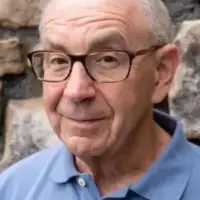
Dave Stern, MD
Medical Director

Susan Hoffman, LCMHC
Primary Therapist
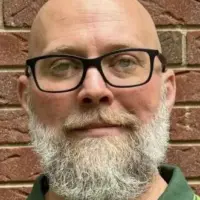
Rhett Owensby, LCAS, LCMHC, CCSI
Clinical Director

Jake Gorman
Director Of Marketing
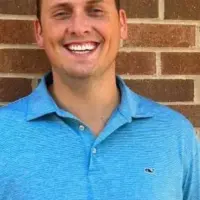
James Brown
Director Of Admissions
Accreditations

LegitScript has reviewed Southeastern Recovery Center – Drug & Alcohol Rehab as part of their certification program, and has determined that it meets the LegitScript standards for legality, safety and transparency.
LegitScript verified in

State Licenses are permits issued by government agencies that allow rehab organizations to conduct business legally within a certain geographical area. Typically, the kind of program a rehab facility offers, along with its physical location, determines which licenses are required to operate legally.
State License: North Carolina

The Joint Commission, formerly known as JCAHO, is a nonprofit organization that accredits rehab organizations and programs. Founded in 1951, the Joint Commision's mission is to improve the quality of patient care and demonstrating the quality of patient care.
Joint Commission Accreditation: Yes
